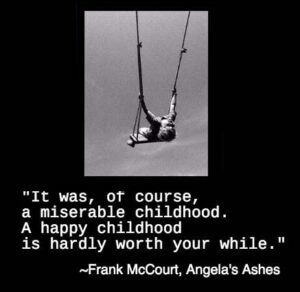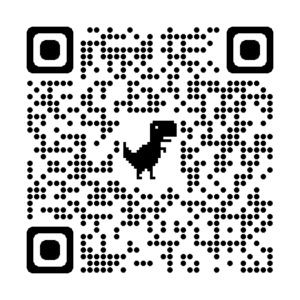About once a year, I do a Google search for Noah Adams’ NPR interview with Frank McCourt so I can hear McCourt’s lovely Irish voice and once again, be inspired.
Why was is Frank McCourt my inspiration?
- Because it was after hearing NPR’s 2009 interview with Frank McCourt, that I knew I wanted to write my own memoir.
- Because when Frank McCourt published his first book, Angela’s Ashes, at the age of 66, I thought maybe I could still be considered an “emerging” writer at my age.
- Because I loved the way he managed to write the dreadful conditions of his childhood in a comic manner. Wikipedia calls it a “tragicomic memoir of the misery and squalor of his childhood.”
- Because I had first-hand knowledge of a painful childhood.
No, I didn’t grow up in squalor. We lived on a 3-generation farm where we had plenty of food to eat, and a hundred acres to run around. Of course, the reason we had a hundred acres to run around was that my mother commonly locked us out of the house so she could watch “her stories” on television and smoke cigarettes. I was in charge of the younger kids and, for their entertainment, I led them over hill and dale, dodging cow patties, grazing on wild strawberries, and building stick forts until the cows came home.
When I heard the NPR interview, I was 59. It took me more than a few years until I got started. I was naive enough to think that my memoir would be ready after two or three rounds of editing. Ha! It’s taken seven drafts to get it right.
But enough about me. My mother would always accuse me of “getting a big head” if I said anything positive about myself.
I think I’ve managed to write some decent tragicomedy in my 371 pages of The Girl with the Black and Blue Doll. (McCourt’s has 369 pages. A coincidence.)
But I can’t match McCourt’s “we were so poor” story.
He told of how they were often without food.
One night he asked his uncle about food to eat and his uncle said there was none, so after the uncle went to bed, young Frank saw his uncle’s discarded fish and chip newspaper on the floor. He retrieved it and began to lick the oil out of the newspaper pages. Licking the obituaries and the sports pages and the headlines of World War II (and more!) until there was no more oil to lick.
I still think that fish and chip newspaper is the most tragicomic story I’ve ever read. In my own memoir, the fish and chips were a bit more serious. Here’s the short version.
Like McCourt, we also were Catholics. One day when my mother had just put the Crisco on the stove to heat for the fish on Friday that she was going to cook, she got distracted. She heard the bread man toot his arrival in the driveway, and since Mummy was always very chatty, she and Norman always spoke at great length. The next thing she knew, Norman saw black smoke pouring out the screen door. A fire! The firetrucks, my baby brother being brought out to his carriage, my siblings and I running down the road from the school bus to discover the disaster. I saw my 10-year-old brother being flung horizontally from the front step by a fireman.
“Get outa here!” snarled the fireman.
“It’s my house!” screamed my brother.
That night as we sat around the kitchen table, my mother cried. Then, my father began to cry. I don’t know what we had for supper, but it wasn’t fish and chips.
And the next day? We went to school as usual. Dirty hair, smoky clothes. Sad.
I was in the girls’ room when I heard Sister Florentine’s voice, “Where’s Linda?”
That concerned me but I eventually came out of the stall and she ran to throw her arms around me. I remember her wooden cross pressing into my chest, her scratchy wool habit, and the feeling of being held like a baby.
It was my very first hug. I was in eighth grade.
Here’s a link to the NPR interview. Noah Adams reveals a great deal of the man in this 9-minute listen. Enjoy!
https://www.npr.org/1996/10/01/1045022/frank-mccourt-on-angelas-ashes

